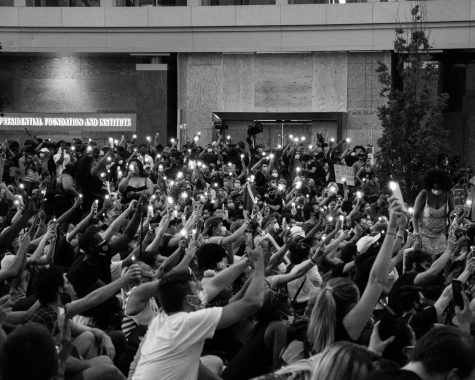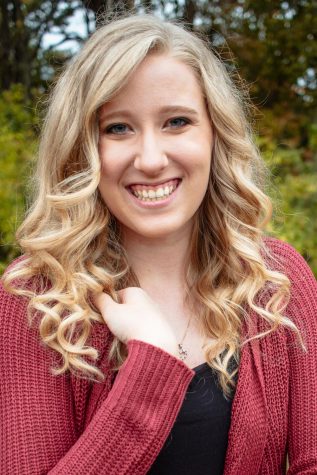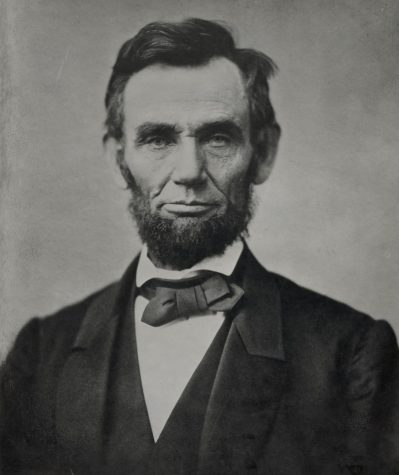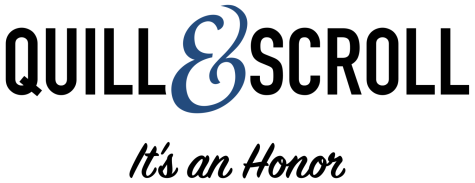THE WEEKLY SCROLL
June 5, 2020
News, tips and advice from Quill and Scroll
The Lede

Washington, D.C., June 3, 2020. Photo by Koshu Kunii on Unsplash
Q&S’s eighth principle is the cure for the nihilism and cynicism that are fracturing our country.
Friendship
By Jeff Browne, Q&S Executive Director
“The architecture of journalism is changing. There is journalism as a product…and journalism as a function of civil society.” — Farai Chideya, author, intellectual, reporter.
As a high school journalist in the late 1970s, and then again as a college journalist in the early ’80s, I must have missed the lessons about how journalists are supposed to practice friendship.
I clearly heard the calls to “afflict the comfortable and comfort the afflicted,” but that was supposed to be accomplished through the verity of my reporting and the clarity of my measured prose. Compassion and empathy weren’t a part of my privileged perspective.
I certainly wasn’t about to be friends with the sources I developed while trying to uncover wrongdoing (there was A LOT of it) in the University of Florida’s athletic department in the late ’80s and early ’90s.
And I have to admit that the idea of “friendship” as a journalistic principle hasn’t been at the forefront of my curricula as a journalism educator over the past 30 years.
My bad.
This week has underscored for me the eighth — but not least important — founding principle of the Quill and Scroll Honor Society.
Friendship.
But it’s not a specific friendship, in the way that most of us interpret it. Rather, this concept of friendship should be based on the Quaker tradition, without the requisite religiosity, in that we all share a common belief. In this case, as residents of democracies around the world, that belief is in the power of the people to determine their own fates, to demand justice, and to call to account those whom we have elected to represent us in our governments.
Yet we’ve just witnessed 10 days during which police and those whom they purportedly protect have been at odds, fueled by the callous killing of a black man — for alleged fraud and forgery — at the hands of an officer in Minneapolis now in custody and charged with murder. Three other police have also been charged with crimes.
The resultant protests in dozens of cities, large and small, have been both inspirational and dismaying, peaceful and violent. In some cases, the police have joined with those they protect in demonstrations of solidarity. In other cases, the police have — depending on your perspective — violently retaliated against peaceful protestors and/or done their best to quell lawlessness in our streets.
Frankly, it’s been a lot of both, and it must be exhausting to be a law enforcement officer of any stripe these days. My brother-in-law is a firefighter in Lincoln, Nebraska, where the downtown area saw more damage by arson this week than at any time in its history. He, too, must be exhausted.
For his part, the president of the United States — who, by one count, has violated Quill and Scroll’s first principle, truth, at least 19,000 times during his term — in the wake of a teargas cloud and mounted officers clearing the way for him to proceed, strolled from the White House to a historic church for a photo op. Today, the White House has been further shrouded in mystery by a series of fences built around it.
More fencing going up around the White House complex early this morning pic.twitter.com/VLBRnx1lgz
— Betsy Klein (@betsy_klein) June 4, 2020
Also, amid the protesters and police officers trying to make sense of the chaos in our streets, journalists have been under attack by both. Some of that animosity is genuine, and our profession can’t be immune from criticism if we do a poor job of telling the truth.
But much of it is driven from a single misperception about why journalists choose to do journalism.
Let me be clear: ethical, thoughtful and professional journalists — the vast majority of my friends, colleagues and former students — go into the business not to prove a point or take a side. If you choose to believe differently, that’s your right. But that way is nihilism and cynicism. That way denies the basic goodness of the American people and the nature of our democratic republic.
I subscribe to the Cedar Rapids Gazette, the Wall Street Journal, The New York Times, The Washington Post, ProPublica and the Omaha World-Herald because the journalists on the news sides practice the discipline of verification before they publish, and when they make a mistake, the quickly and transparently correct that mistake. I don’t watch much television news. To take the cynical position that all journalism is just a partisan exercise is to go down the rabbit hole of relativism and “we just may never know what’s real and what isn’t” gaslighting.
That’s a place I don’t want to be. I’d rather be friends.
It’s An Honor
2020 Q&S Scholarship Winners
FHN digital innovator wins top scholarship; three others selected

Emily Hood/Francis Howell North
Emily Hood from Francis Howell North High School in St. Charles, Missouri has been named the winner of the 2020 George and Ophelia Gallup Scholarship, awarded by Quill and Scroll.
Hood, who served two years on the Quill and Scroll Student Advisory Board, earned the $1,500 award because of her outstanding work as a student journalist, and because of her commitment to the profession and the organization’s eight guiding principles.
Other winners include Anna Mullins from Lakota East HS (Ohio), Nina Lavezzo-Stecopoulos from Iowa City HS and Elise Trexler from West Henderson HS (North Carolina).
You may read more about Hood and the other scholarship winners at this link.
Can you help build our scholarship fund?
In the very near future, Quill and Scroll hopes to increase its top award to $5,000 per year, but we need to build our endowment before we can do that. If you’d like to help with that, please visit this page and think about a generous donation to our scholarship fund. It’s likely tax-deductible.
Other announcements
Yearbook Contest is open for entries
The Quill and Scroll Yearbook Excellence Contest is ready to start taking your entries.
You may get started right here.
Please know that this is a digital contest (the third year in a row we’ve done it digitally), so all entries go into a cloud storage where judges around the country can access them.
Entries for the Theme Development category are $10, and all other categories are $5. There are no limits to the number of entries in the $5 categories. Schools compete in two classifications: Class A for schools with 750 or more students, and Class B for schools with 749 or fewer students in grades 9-12.
Summer workshops—are they still happening?
The answer is yes and no. For the summer workshops we’ve partnered with, all have transitioned to an online format, except for Indiana University and the Institute for Environmental Journalism, who have canceled due to the impact of the novel coronavirus.
Here’s a quick summary of the new online policies our partners have adopted in lieu of this global pandemic:
- Media Now is still having their summer workshop, occurring from June 22 to June 25. Their workshop will be going live at MediaNow.Press. All materials will be accessible until Sept. 1, 2020. Course material will be uploaded via video so that you can work through it all on your own, at your own pace. They have also set certain live times for feedback and conversation throughout the week. Media Now Online will have one live daily large group session and a varying degree of opportunities to connect live with your instructor and classmates throughout the week. You will NOT be sitting in front of a computer all day, all week in the middle of summer. They’re also giving out a scholarship to cover the cost of one course. Learn more here.
- Columbia Scholastic Press Association has switched to a virtual summer journalism workshop format as well. Their workshop will occur virtually from June 22 to July 31. That’s 8 different classes offered over the course of five weeks! The annual Summer Journalism Workshop offers sequences focused on either writing, editing, management or advanced design. Participants will choose one class for a particular week (Monday-Friday), virtually attending that same class each day (through Zoom). Students and advisers who choose to take an additional class during a different week are encouraged to do so and at a reduced rate. Learn more here.
- Iowa Summer Journalism Workshop has also switched to a virtual configuration as a response to COVID-19. The online workshops will be held July 20-23, 2020. Sign on instructions will be provided to registered attendees in the week prior to the workshops. You’ll need a computer with web camera and internet connection. Online classes will commence at 9:00 am each morning in a large session for all workshop participants. On the first day we will review ground rules for a successful workshop and then we have an exciting guest speaker. From there students will migrate to their topic specific workshop led by their instructor. Each day will conclude at 3:30. Faculty is available for coaching during office hours Tuesday and Wednesday evenings. Find out more specifics here.
Other Deadlines
Q&S Student Advisory Board deadline has been extended to Sept. 1
Here’s your chance to take on an important leadership role and help make important contributions to a unified project released for nationwide engagement in the fall semester every year. To top it off, you’ll work directly with our director to help promote the ideas and importance of scholastic journalism. Plus, it looks great on a resume! The deadline this year was extended to Sept. 1, so mark your calendars and apply here!
News Media Evaluation Service is June 15
Our annual News Media Evaluation Service is open for submissions! The News Media Evaluation resource has proven to be one of the most beneficial resources for scholastic journalists and their advisers, as winners receive constructive comments and suggestions for improvement from qualified evaluators. Judges will provide a thorough analysis and rating to schools, and the evaluation exercise and feedback are instructive and developmental.
Judge’s comment: “The Crier is solidly issue-based, providing a great service for helping students make sense of the world. You show a great deal of compassion for your fellow students and a great deal of courage in addressing tough issues like consent.”
This is the best critique (in terms of specific things to work on and suggestions to keep on going) that my students have ever gotten, ever. My staff is STILL benefiting from that critique. It’s shaped much of our philosophy in coverage and some of design for this year! So, thank you so so much.
To enter, high schools and junior highs may enter their multimedia news operations, newspapers, news magazines and/or online news sites until June 15, 2020.
We want to help make this process as easy as possible for you and still provide valuable services to those who enter. Thus, PDFs of print publications may be submitted because of the extraordinary situation we’re all experiencing right now. Find further instructions on how to enter and details here.
Membership
Simplified order forms and online inductions
For the most part, Quill and Scroll has moved off campus, but we go in every few days to fulfill and ship orders for induction materials and other Quill and Scroll schwag.
We published this update earlier this spring. It includes a simplified order form for schools and advisers willing to pay via credit card, and an offer to host an online induction ceremony for your students.
A reminder about cords
Students MUST HAVE BEEN OR WILL BE INDUCTED into the Society to earn the honor to wear an Honor Cord (GHC) or Honor Cord with Insignia (GCI). If you order cords for non-members, please choose the Non-Member Cord Option (NCD). Quill and Scroll exists because of the special unifying bond brought about by membership and the lasting legacy of the induction ceremony.
And, as always, feel free to email [email protected] if you have any questions.
What’s Hot?

Photo by Matthew Guay on Unsplash
Media Literacy Now!
TV news versus TV entertainment
We’ve known for a long time that people who watch Fox News for most of their information versus those who watch MSNBC often have very divergent views of the world. It makes older people long for the days when we had only three broadcast news channels to choose from. This report from the Poynter Institute underscores that thought, and it adds CNN into the mix.
Two thoughts here:
- People don’t read enough news, especially local reporting; and
- What they watch on television is driven by their desire to have their biases confirmed and to be entertained.
Quill and Scroll’s long-story short: read a newspaper, in print or online. Watch television news with a clear understanding of the difference between opinion and news. And know that reporters and editors are simply trying to determine what’s true right now, and that they’ll correct themselves and others if needed.
Everyone should have a journalism education and be media literate
This story from School Administrator magazine underscores our point.
In it, educators make the case that in journalism education students learn how to research, evaluate sources, interview, write concisely and precisely, and present information to a mass audience in a readable or watchable product.
Duh.
So why don’t we have media literacy as a required course of study in our schools? And why does it seem that so many journalism programs struggle to maintain funding?
In this era of gaslighting and propagandizing from our governments, maybe it’s time for students and parents to demand media literacy curriculum in our schools. What is your state doing about it? Have you talked your school board? Your state legislator?
SPLC publishes guidance for students covering protests
Please discuss with your parents and teachers before heading out into what could be a life-threatening situation. If you choose to do so, please read the Student Press Law Center’s guidance for student journalists covering protests.
Just a Thought

Photo from Library of Congress
Remember Gettysburg
“We here highly resolve that these dead shall not have died in vain—that this nation, under God, shall have a new birth of freedom.”
Let us heed the words of our greatest president, Abraham Lincoln, when he addressed a small gathering in Gettysburg, Pennsylvania in 1863 and tried to heal the nation’s wounds during the Civil War.
First a story of protest in 2020 Gettysburg.
Lincoln in 1863:
“Four score and seven years ago our fathers brought forth on this continent, a new nation, conceived in Liberty, and dedicated to the proposition that all men are created equal.
“Now we are engaged in a great civil war, testing whether that nation, or any nation so conceived and so dedicated, can long endure. We are met on a great battle-field of that war. We have come to dedicate a portion of that field, as a final resting place for those who here gave their lives that that nation might live. It is altogether fitting and proper that we should do this.
“But, in a larger sense, we can not dedicate—we can not consecrate—we can not hallow—this ground. The brave men, living and dead, who struggled here, have consecrated it, far above our poor power to add or detract. The world will little note, nor long remember what we say here, but it can never forget what they did here. It is for us the living, rather, to be dedicated here to the unfinished work which they who fought here have thus far so nobly advanced. It is rather for us to be here dedicated to the great task remaining before us—that from these honored dead we take increased devotion to that cause for which they gave the last full measure of devotion—that we here highly resolve that these dead shall not have died in vain—that this nation, under God, shall have a new birth of freedom—and that government of the people, by the people, for the people, shall not perish from the earth.”
